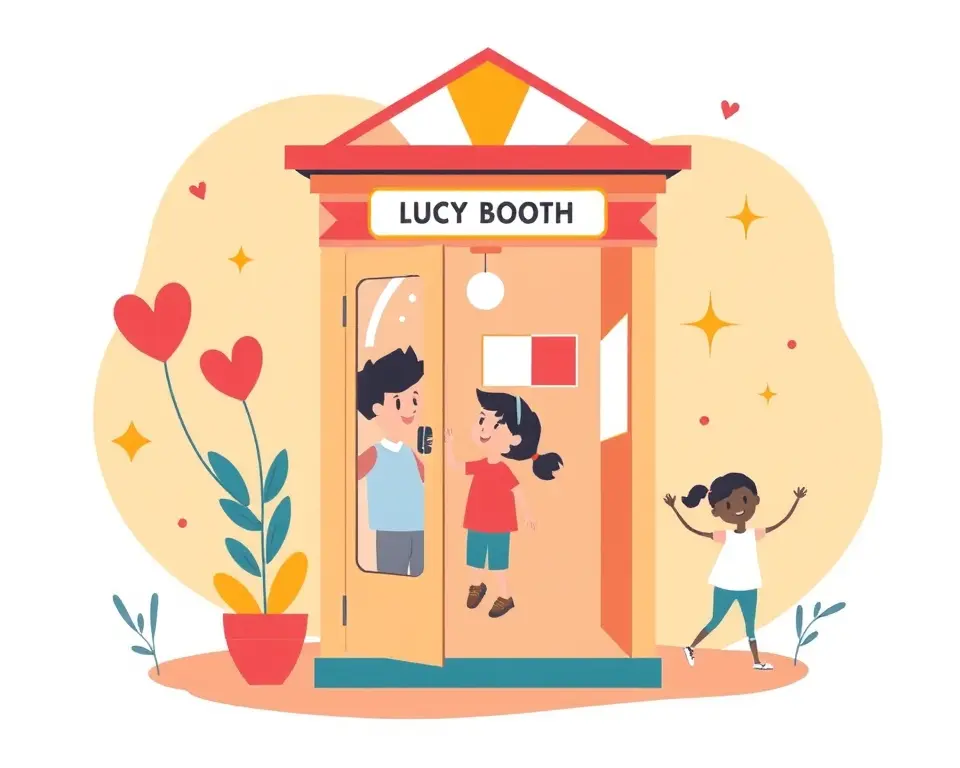Mental health support for children is getting a playful and effective upgrade. Inspired by the Peanuts comic strip, “Lucy Booths” are popping up in healthcare settings across England, offering a novel approach to addressing the mental health needs of young people. These colorful, inviting booths, modeled after Lucy van Pelt’s psychiatric advice stand, are showing promising results in reducing emotional and behavioral difficulties and improving the overall quality of life for children.
The Inspiration Behind the Booths
The concept for the Lucy Booths was conceived by Professor Isobel Heyman, a clinician at Cambridge Children’s Hospital, who drew inspiration from the Peanuts comic strip. In the comic, Lucy offers psychiatric advice to other characters from her booth. Professor Heyman recognized the potential of this simple yet engaging concept to create a welcoming and accessible space for children to discuss their mental health concerns. Cambridge Children’s Hospital aims to provide integrated care for both the physical and mental health of children, and the Lucy Booth embodies this goal.
Addressing a Critical Need
Globally, a significant percentage of children and young people, between 15-20%, have long-term physical health conditions. In the UK, approximately half of these children also experience mental health challenges. Unfortunately, many of these children struggle to access adequate mental health support due to a lack of service provision. The Lucy Booths aim to bridge this gap by providing a readily available, self-referral service with minimal wait times.
How the Lucy Booths Work
The Lucy Booths provide a drop-in model of mental health support, allowing children and families to self-refer and access treatment quickly. The process typically involves:
- Initial Assessment: Children receive an initial assessment to identify their specific needs.
- Intervention: Following the assessment, children may receive a low-intensity intervention, such as Cognitive Behavioral Therapy (CBT), or be referred to other relevant services within or outside the hospital.
- Accessibility: The booths are designed to be easily accessible and welcoming, reducing the stigma often associated with mental health services.
Positive Outcomes and Impact
A trial of the Lucy Booths across six pediatric settings in England, involving 120 families, demonstrated significant positive outcomes. The trial showed that the Lucy Booth drop-in service led to significant reductions in emotional and behavioral difficulties and improved quality of life. Psychologists have described the service as a “game-changer” due to its dramatic and meaningful impact on patients.
Comics and Mental Health: A Powerful Connection
The use of comics as inspiration for mental health initiatives is gaining traction. Comics can be a powerful tool for teens to learn about mental health, and for parents to lean on for important conversations about complex topics.
Benefits of Using Comics for Mental Health
- Accessibility: Comics can make complex concepts more accessible and easier to understand, particularly for children and young people.
- Engagement: The visual nature of comics can be highly engaging, capturing the attention of individuals who may not respond well to traditional text-based resources.
- Emotional Vocabulary: Comics can help strengthen emotional vocabulary by providing visual representations of feelings and experiences.
- Universality: Comics are a universal medium with different languages and genres, making them an easy way to connect with people from diverse backgrounds.
- Reducing Stigma: By normalizing mental health challenges through relatable characters and stories, comics can help reduce stigma and encourage open conversations.
Examples of Comics and Graphic Novels for Mental Health
Several graphic novels and comics address mental health issues in an accessible and engaging way:
- Here I Am, I Am Me: An Illustrated Guide to Mental Health: This book explores various aspects of mental health using illustrated characters to portray complex neuroscience concepts.
- Superhero Therapy: Mindfulness Skills to Help Teens and Young Adults Deal with Anxiety, Depression, and Trauma: This self-help handbook uses superheroes to share skills for overcoming mental health challenges.
- Michael Rosen’s Sad Book: This book explores the experience of sadness in a relatable and honest way.
- Marbles: Mania, Depression, Michelangelo, and Me: A graphic memoir that chronicles the author’s experience with bipolar disorder.
- Hey, Kiddo: A true story of childhood turmoil and finding the help and determination to thrive.
The Future of Mental Health Support for Children
The success of the Lucy Booths highlights the potential for innovative, accessible, and engaging approaches to mental health support for children. By drawing inspiration from popular culture and utilizing the power of visual communication, these initiatives can help break down barriers, reduce stigma, and improve the well-being of young people. As awareness of the importance of children’s mental health continues to grow, expect to see more creative and effective solutions like the Lucy Booths emerge.










